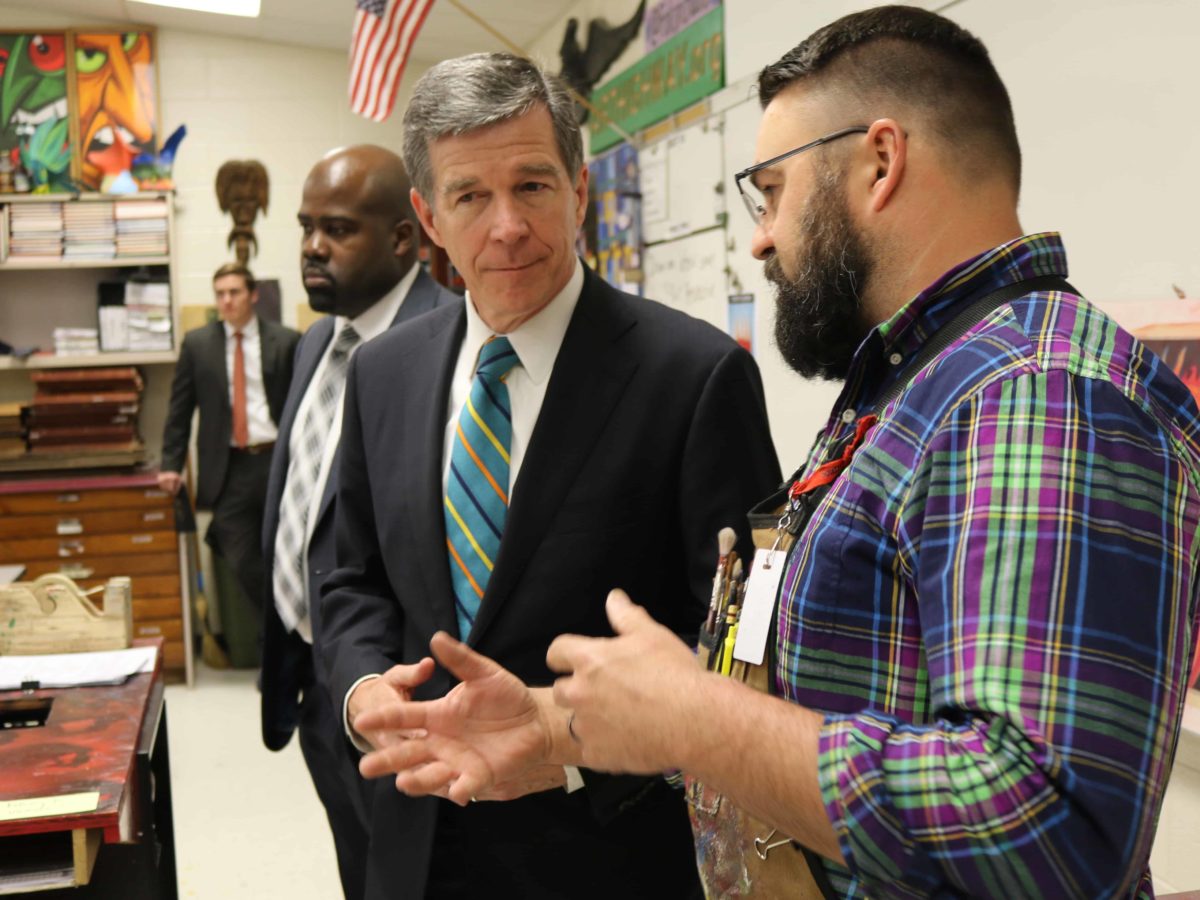

The day after Governor Cooper released his proposed state budget, a public radio report portrayed his role in the appropriations process as “largely symbolic.” It is that, and more, particularly with regard to his education agenda.
One of the long-standing duties of North Carolina governors is to launch the budget-making process by sending the General Assembly a plan. Then, House and Senate adopt appropriations bills, usually followed by a conference committee that forges a final budget. The public radio report suggested that Cooper, as a Democratic governor, would have limited influence on a Republican legislature with veto-proof majorities.
Even though lawmakers could override a gubernatorial veto, a governor need not stand on the sidelines. A governor, elected statewide, can offer a wider perspective to lawmakers, elected from districts. Even when previous governors had legislatures with their own party in a majority, they had to push, prod and fight for their proposals. In doing so, governors define key issues for legislators – and for voters.
There are ways to characterize the Cooper education budget that go beyond mere symbolism. First, one might consider what it is not. It is not a liberal budget. It is not a high tax, big spending plan. Governor Cooper proposes no tax increases and fits his proposals within foreseeable revenue in the short-term.
A major characteristic of the Cooper education budget is restoration. The governor proposes to restore elements of the education-policy packages devised during the Hunt, Martin and Easley administrations. For example, without formally reinstituting the Teaching Fellows Program, Cooper proposes forgivable $10,000 loans per year to students who agree to teach in North Carolina public schools. He calls on the legislature to give 5 percent pay raises to teachers in each of the next two years, and an average 6.5 percent raise for principals and assistant principals.
Cooper proposes a $15 million addition to SmartStart and funding to open up 4,700 more slots in pre-K. These proposals come as CEOs of North Carolina corporations voice support for a Business Roundtable finding that early childhood education leading to third-grade reading proficiency has long-term economic payoffs. In effect, Cooper has given them a specific item for advocacy.
In another education-for-economic advancement measure, Cooper would direct a portion of state lottery proceeds to a scholarship program designed to make community college free for recent North Carolina high school graduates, beginning in the 2018-19 fiscal year. Meanwhile, Cooper calls for terminating publicly-funded private-school vouchers except for current recipients.
Another characteristic of the Cooper education budget is aspirational. In announcing his budget proposal, the governor said he aspired to make North Carolina a “top 10 educated state” by 2025 (not coincidentally, the conclusion of his tenure if elected to two terms).
He defined his goals as increasing enrollment of four-year-olds in pre-kindergarten from 22 percent to 55 percent, raising high school graduation rate from 85.6 to 91 percent, and increasing adults with higher education degrees from 38.7 percent to 55 percent. The Cooper budget would not reach these goals of the next two years, while he signals that he would lead in that direction.
As a newly elected governor who won with a slim majority and who faces an opposition-party legislature, Cooper has acted with a sense of prudence. He has proposed mostly mainline education policy that is safe, traditional, and important. Cooper’s budget provides benchmarks by which to assess the outcome of legislative policy making and budgeting in education.
To pursue his aspirations to make North Carolina a leading education state will surely require Cooper to reach beyond mainline policy and speed up the quest for fresh, novel approaches. It has been more than a decade since North Carolina had a thorough examination of its education system and a systematic research-based effort to identify creative and innovative initiatives to accelerate achievement among the best and brightest and to open up opportunities for young people for whom the current system does not work well.
Even as he copes with difficult budget-making terrain that may produce a combination of contention and stalemate, Cooper has an opportunity to develop a look-ahead vehicle that suits his leadership style to address the question: What big steps will North Carolina take to develop schools to educate its young people to thrive in the mid-21st Century?


